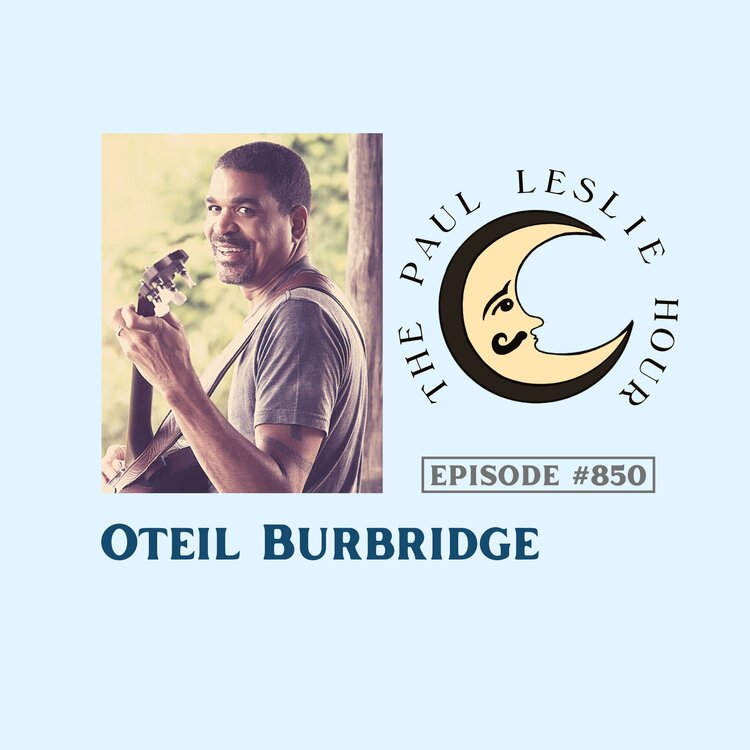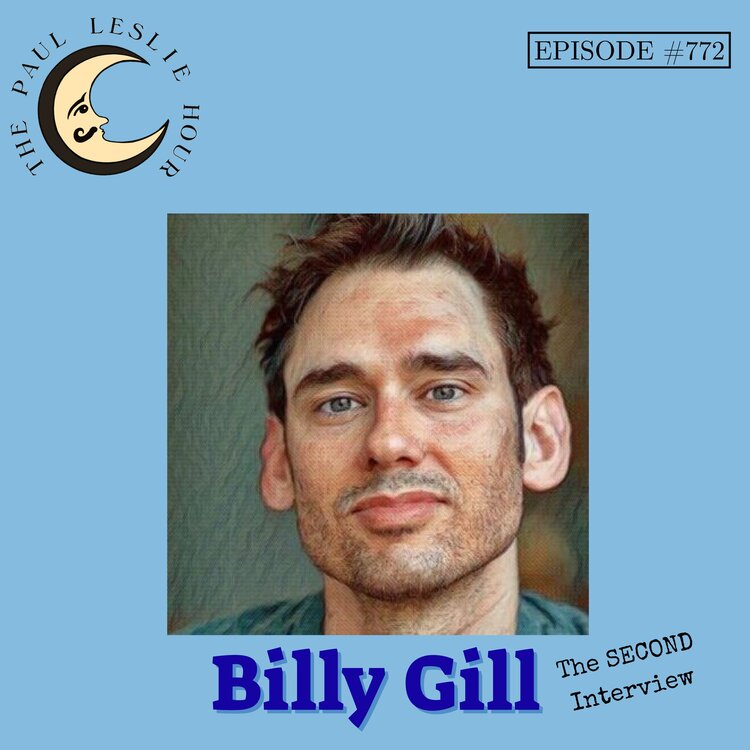
When I interviewed Walter Breuning he was 113 years old, just a few weeks away from being 114. At the time he was the oldest living man in the world. I found him to be incredibly sharp. He said the secret to his longevity was keeping the weight off and helping people in life when you have a chance. How do you think he arrived upon these conclusions?
Since October 2003 The Paul Leslie Hour has made all content available to everyone. If you’ve ever gotten enjoyment or inspiration from The Paul Leslie Hour, consider becoming a patron.
Subscribe/stream on the following platforms:
• RadioPublic • Stitcher • iTunes • Spotify • Player FM •
• Overcast • iHEARTRadio • CastBox • Acast • Deezer
Consider sharing this interview on Social Media.
Like us on Facebook Follow us on Instagram & Twitter.
The Official Interview Transcript
Well, ladies and gentlemen, I’d like to introduce you to the man I’m talking to right now. His name is Mr. Walter Breuning and he was born September 21, 1896. How are you doing out there?
I’m doing just fine.
Tell us Mr. Breuning, where were you born?
I was born in Melrose, Minnesota. That’s 30 miles this side of Minneapolis.
And what was life like growing up?
It was just like growing up any time. If you get in any fights, you’ve got to watch yourself all the way from the time you’re a baby. And remember what’s going on and remember so you can tell people what’s going on in the world. And be doing something for people. Don’t forget that, too. You’re supposed to be helping others, you know.
Tell us about your grandfather.
My grandfather was first from Pennsylvania. He came to Melrose – that’s where he met his wife, I guess – he came to Melrose after the Civil War. He was in the Civil War. And all of the family were born in Melrose including my mother.
Tell us about when you were growing up.
Well when I was growing up I can remember …years old my grandfather telling us about the Civil War and we moved to Minneapolis then. The next year I was four years old and I got my first haircut. And then from Minneapolis… we moved to De Smet, South Dakota, where my father was a civil engineer in these flour mills that used steam. And for 11 years, no electricity. Kerosene lamps. The only transportation was horses and the Chicago Northwestern Railroad. No running water in houses at that time. No bathrooms. Pumps all around the outside bringing in the water. Went to school the next year, six years old, my mother put me in school. I had to quit in the 10th grade. A family break-up. I had to go to work in a bakery shop scraping bread pans. $3.50 a week.
My goodness.
And I was only 14 years old. After seven years we moved back to Melrose again. And then I went to work for the Great Northern Railroad in 1913. In 1918 they transferred me here to Great Falls. I’ve been here practically all that time with the exception in 1919 business was bad and they laid off a lot of employees. I had to go over to Butte and work for a couple of years. I bumped a guy over there. I worked for 50 years and retired in ’63. That was growing up.
Would you say that life has gotten easier throughout the years?
Life was tough, I’ll tell you. When, during the depression there was nobody working in no place in the United States. It was all closed down. I was still working. Roosevelt – Franklin Roosevelt, he was elected in ’30 – immediately closed all the banks in the United States. Reorganized them ‘cause there wasn’t anybody to organize money. I think it’s about $200,000 guarantee if you got that much in the bank.
Would you say that the world is in a better state now?
Right now the world is in terrible shape. We got our congress and our president fighting each other all the time, just the same as they did during the ‘30s when Hoover was president. And they start wars to keep everybody on the job, you know. They should’ve closed this was out a long time ago. In fact, they should’ve never started it in the first place. It’s all politics all the way through the whole world – everywhere. But as far as, the condition of the country today, people have got more money today than they’ve ever had in their history and they’re spending it. Of course, everything’s so much more expensive, too. In the 1930’s the wages, 65¢ an hour was all people got, you know. If you made $50.00 a month during those periods you were making pretty good money. But today, you look at today, $20, $30 dollars an hour or more, up to $50 or more. You’re talking about conditions, it’s better today than for a long time. These are all different changes. Every change we’ve had – television, radio, everything – has all been good for the working man. All those changes made working conditions different. You know, the computer come on in the ‘60s, ’65, somewhere around there, changed the condition of the workforce. Like today, they don’t need as many people working as they did a number of years ago. That’s why there’s practically 12 million right now out of work. They don’t want to work, can’t work. Some of them don’t want to work as long as the government’s paying for it. That’s why conditions are today. They’re very good. Our governor’s been here two or three times. People got lots of money. Banks are full, loaning money everywhere, and of course, congress bailing out the big banks, bailing out our congress, million-dollar salaries. That’s your conditions today. Like…baseball, football, all of that – million-dollar salaries and you can’t compete with all that kind of stuff. One hundred years ago, nobody working, $50 a month salaries. That’s the difference between now and then.
Was there one moment in your life that was an especially happy time during your life? What was the happiest moment in your life?
It’s always been happy, all the way through. During the times when we didn’t have nothing, no electricity or anything, nobody else had any either. Small towns were all dark. Nobody knew any different so that’s the way we had to go through it. Today – look what they got today.
What would you say is the secret to good health?
I’ve always been in good health. I take no medicine, no pills, never have. And being good to other people, that’s one of things you want to do all the time. See that you’re good to them and kind to them. The world is upside down right now, mad at each other. Every country thinks they’re mad at each other, killing each other all over the country. And the government training our army to kill other people. That’s what hurts, too. But as far as conditions in the country, everybody’s got more now than they ever had and they’re enjoying life. Because every change we’ve ever had has improved the conditions of the workforce. And one thing that, after my wife passed away in 1957, I started eating in restaurants, you know, and two meals a day, that’s all I ever eat since. Breakfast, lunch. And keep that weight off you. You go up to the hospital and see the people that come in there today and half of them have got too much weight on them.
That’s true.
And it don’t seem to help. Some people, I get – I’ve had about 400 letters from all over the country, some of them telling me they have reduced to two days a week for food and a lot of changes like that.
When you have your birthday in a couple of weeks, are you going to have any kind of a special meal, like a birthday dinner?
Well the governor’s coming, the governor…, and we’ll have ice cream and cake, and the Masonic Lodges will all be here. And that’s one thing, you know, I never retired until I was 99 years old. That’s the last job I had, was Manager/Secretary to the Shriner’s Club. All the way through my life, everything worked out very good.
Mr. Breuning do you have a favorite song?
Music? I liked all the music that we’ve had from the time back years and years ago. The singing isn’t quite good, I think, today. There’s too much screeching and hollering. You see, years ago we had better singers than we got today.
Do you have a favorite singer?
No, not really a favorite. I like all those movie singers. They’ve all been good and – Crosby, you know, and Eddy Arnold, all that bunch. Bob Hope was – I don’t remember hearing so much about Hope as I did some of the other singers.
What a about a favorite tune?
No favorite songs. They were all, I like all kinds of music, especially piano.
What would you like to say to all the people who are listening in?
Well, you can’t make changes over 100 years, you know, especially when you didn’t have any electricity. When you go through your life for 11 years without electricity, you realize what wonderful things we have today, compared with the years ago. A lot of changes have been for the good. And there’s going to be more changes, too.
My last question: What advice would you give all the people who are listening?
Well, I give them the same advice – I tell people to help people in life when you have a chance. You know we used to, years ago, help one another. Now, though, you help anybody you want to get paid for it. People should be helping one another through life. Every time you get a chance to help somebody, do that. And be sure you stay on the diet. Stop foolish consumption.
Mr. Breuning, thanks so much for this conversation. I appreciate it.
Well, thank you for calling.
Thank you for talking with me.
And if my advice is any good, why, write it up.
Alright (laughs).
Tell people to be good to others. That’s the main thing. Treat them kindly. Every day is a good day. That’s one thing you can be sure of. Every day is a good day.
TRANSCRIBED BY GAYLE BRAZDA.

